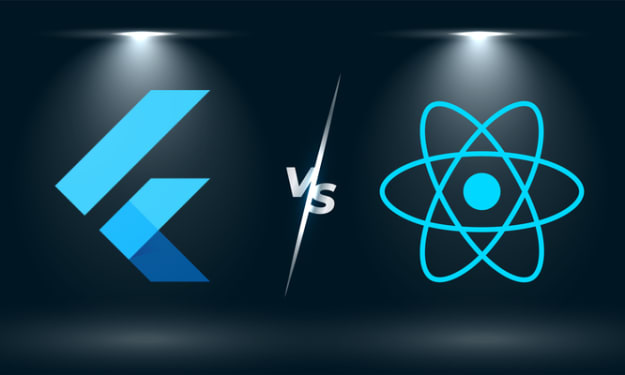Laravel vs PHP: Choosing the Right Framework for Your Project
Laravel vs PHP: Choose the perfect framework for your project. Explore the features and benefits to make an informed decision

When it comes to web development, the age-old debate of Laravel vs PHP is often brought up. While PHP has been around for decades, Laravel is a relatively newer framework and the two can be quite different. Choosing between the two for your project can be a difficult decision, as each one offers distinct advantages and disadvantages. It's important to understand the differences between Laravel and PHP before deciding which one is right for you. In this blog post, we'll explore the pros and cons of both Laravel and PHP to help you choose the right framework for your project.
What is Laravel and PHP?
PHP is a server-side scripting language used for creating dynamic web applications. It's a popular choice for web development due to its ease of use, versatility, and vast community support. Laravel, on the other hand, is a free and open-source PHP web application framework, known for its elegant syntax and impressive feature set.
Using a framework like Laravel can speed up the development process, reduce coding errors, and offer advanced functionality right out of the box. Outsourcing Laravel development or hiring dedicated Laravel developers can save you time and resources, allowing you to focus on other aspects of your business. Similarly, if you're looking for custom PHP solutions, hiring PHP developers can ensure the development of a scalable and robust web application.
Overall, whether you choose to use PHP on its own or opt for the feature-rich Laravel framework, both options can provide powerful and dynamic web development solutions to your business.
Benefits of Using a Framework
Frameworks like Laravel and PHP offer several benefits to developers and businesses. One of the main advantages of using a framework is that it streamlines development, enabling developers to build robust applications quickly. Instead of reinventing the wheel, developers can leverage pre-built components, libraries, and templates that reduce the time and effort required to write code from scratch. This results in faster time-to-market, which is a critical factor in today's fast-paced business environment.
Another benefit of using a framework is that it makes outsourcing and hiring developers easier. For instance, if you want to develop a Laravel-based application, you can hire dedicated Laravel developers who specialize in this technology. Similarly, if you're building a PHP application, you can hire PHP developers who are familiar with the language and its frameworks. This ensures that you can get your project up and running faster, with less overhead and lower costs.
Frameworks also provide a structured approach to development, with clear coding standards and conventions that make code more readable, maintainable, and scalable. This is especially useful in large-scale projects where multiple developers are involved, as it reduces the chances of conflicts and errors that can arise from divergent coding practices.
In summary, the benefits of using a framework like Laravel or PHP are numerous, including faster development, easier outsourcing, better structure and scalability, and lower costs. Whether you decide to hire dedicated php developers or laravel developers, you can be assured of a smoother development process that delivers high-quality, reliable applications.
Key Differences Between Laravel and PHP
Laravel is a PHP framework, but there are several key differences between them. While PHP is a programming language, Laravel is a collection of tools and features built on top of PHP. Here are some of the key differences:
- Structure: Laravel has a well-defined structure for developing web applications, making it easy to organize and manage code. PHP, on the other hand, is a more general-purpose language with less specific guidance on application structure.
- Eloquent ORM: Laravel comes with Eloquent ORM, a feature that simplifies database management and makes it easy to build database-driven applications. This is not a built-in feature in PHP.
- Routing: Laravel has built-in routing features that make it easy to manage HTTP requests and map them to appropriate controllers. PHP requires more manual configuration to manage routing.
- Templating: Laravel uses Blade templating, which provides a clear separation between application logic and presentation. PHP requires more manual management of templating.
Ultimately, the decision of which framework to use will depend on the specific needs of your project. If you are looking for a more structured and easy-to-manage development experience, Laravel may be the better choice. If you are looking for more flexibility and prefer outsourcing or hiring PHP developers, sticking with PHP may be the way to go.
Learning Curve and Developer Community
When choosing between Laravel and PHP for your development project, one important factor to consider is the learning curve and developer community. Laravel, as a framework built on top of PHP, has a steeper learning curve compared to PHP alone. However, this can be overcome by taking advantage of the extensive documentation and online resources available. Additionally, Laravel has a strong and supportive developer community that provides ample opportunities for learning and networking. Outsourcing Laravel development may also be an option for those who do not have the resources to invest in training their own team. PHP, on the other hand, has a wider developer community due to its longer history in the industry.
Scalability and Performance
When it comes to scalability and performance, both Laravel and PHP have their strengths and weaknesses. However, Laravel is generally considered to be the better choice for larger, more complex projects. Laravel development is built on top of PHP, adding extra functionality and features to the language.
This means that Laravel has more advanced caching capabilities, which makes it more efficient when it comes to handling large amounts of data. Additionally, Laravel's built-in tools for managing tasks like database migration and testing can make development faster and easier. If you're considering outsourcing development for your project, keep in mind that Laravel is a more specialized skillset and may be more expensive than basic PHP development.
Security Features
When it comes to security features, Laravel shines brighter than PHP. Laravel offers several security features out of the box such as CSRF (Cross-site request forgery) protection, SQL injection prevention, and secure authentication mechanisms. In contrast, PHP provides limited security features and relies on developers to ensure security. With Laravel's security features, developers can focus on building the application rather than worrying about security threats. Moreover, Laravel development is often outsourced to third-party companies, so having strong security features built-in ensures the safety of client data. Choosing Laravel over PHP can provide peace of mind and help mitigate potential security breaches.
Cost of Development
When considering the cost of development, it's important to take into account not only the upfront expenses but also the long-term maintenance costs. Laravel offers a robust set of features out of the box, which can save development time and ultimately lower costs. However, outsourcing Laravel development may be more expensive compared to PHP development, especially if the team is not experienced with the framework. On the other hand, PHP is a widely used language, with many skilled developers available for outsourcing at a lower cost. Ultimately, it's important to weigh the benefits of Laravel against the cost of development and make the right choice for your project.
Which Framework to Choose: Laravel or PHP?
Ultimately, the decision between Laravel and PHP will depend on the unique needs and goals of your project. If you're looking for a framework that streamlines development, provides powerful tools for building web applications, and offers a thriving developer community, Laravel might be the right choice.
On the other hand, if you have a complex project with specific requirements and are looking for outsourcing options, PHP might be more suitable. Keep in mind the differences in learning curve, scalability, performance, security, and cost when making your decision. Careful consideration will help ensure you choose the right framework for your project.





Comments
There are no comments for this story
Be the first to respond and start the conversation.